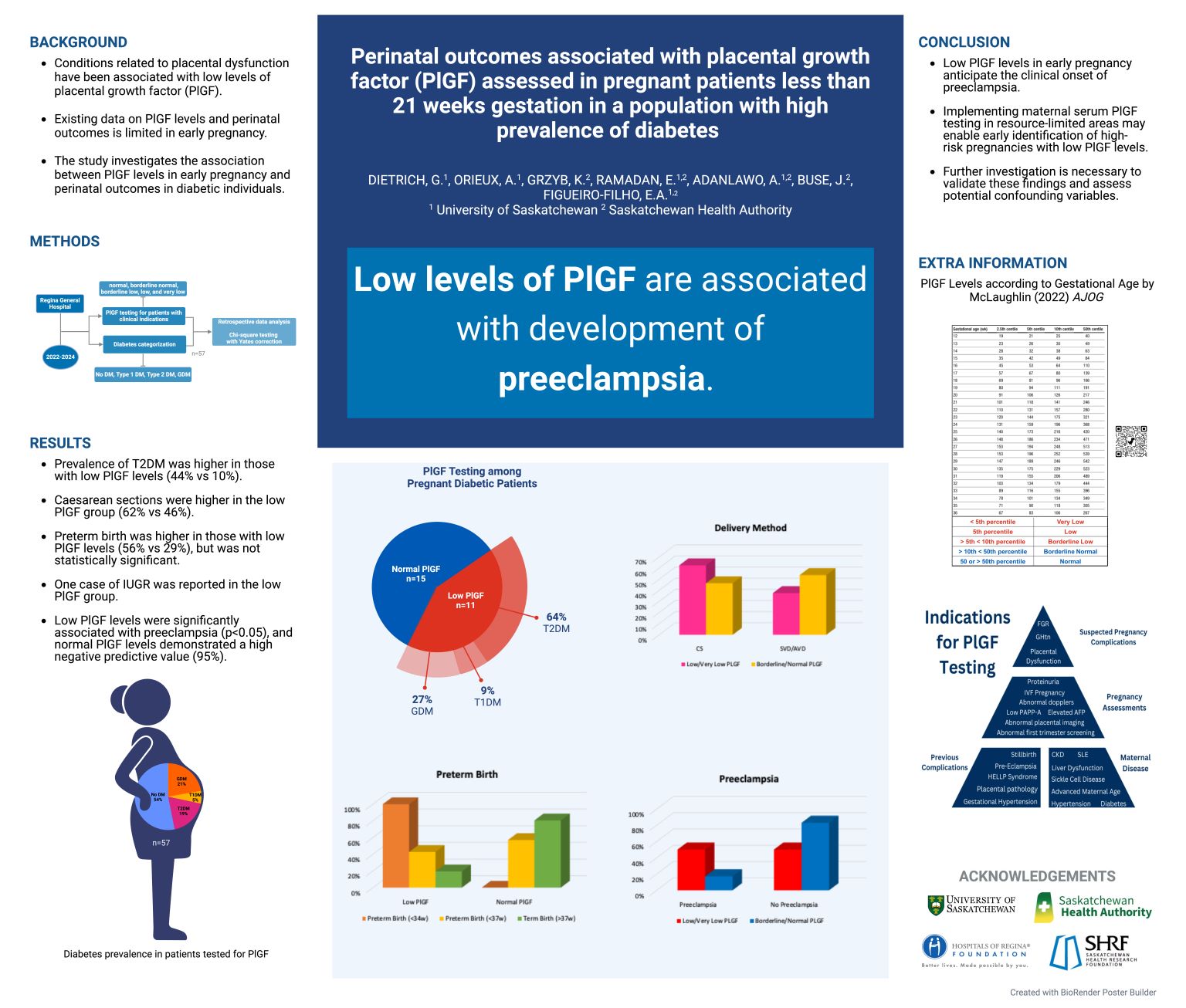
Perinatal outcomes associated with Placental Growth Factor (PlGF) assessed in pregnant patients from 12w-20w6d gestational age, in a population with high prevalence of Diabetes
Genevieve Dietrich
Purpose: This study aimed to investigate the association between placental growth factor (PlGF) levels and the occurrence of adverse maternal and fetal outcomes during the first 21 weeks of pregnancy.
Methods: Data were collected from women receiving care between June 2022 and August 2024. Patients were followed throughout their pregnancy and delivery. PlGF levels, maternal diabetes status, and pregnancy outcomes were recorded. PlGF levels were interpreted based on gestational age, according to previously established criteria. Adverse outcomes were defined as preterm birth before 37 weeks of gestation, preeclampsia, intrauterine growth restriction (IUGR), and low birthweight.
Results: Data was collected for 57 women. Women with low/very low PlGF levels had a higher prevalence of Type 2 Diabetes (44% vs 10%). While rates of preterm birth were higher in the low/very low PlGF group (56% vs 29%), the difference was not statistically significant. Only one case of IUGR was reported during the study period. Low/very low PlGF levels were significantly associated with preeclampsia (p=0.03; NPV=95.23%).
Conclusion: Low PlGF levels in the first 21 weeks of pregnancy can aid in the prediction of preeclampsia. Inclusion of PlGF screening into early pregnancy assessments could enhance the prediction of adverse pregnancy outcomes.
